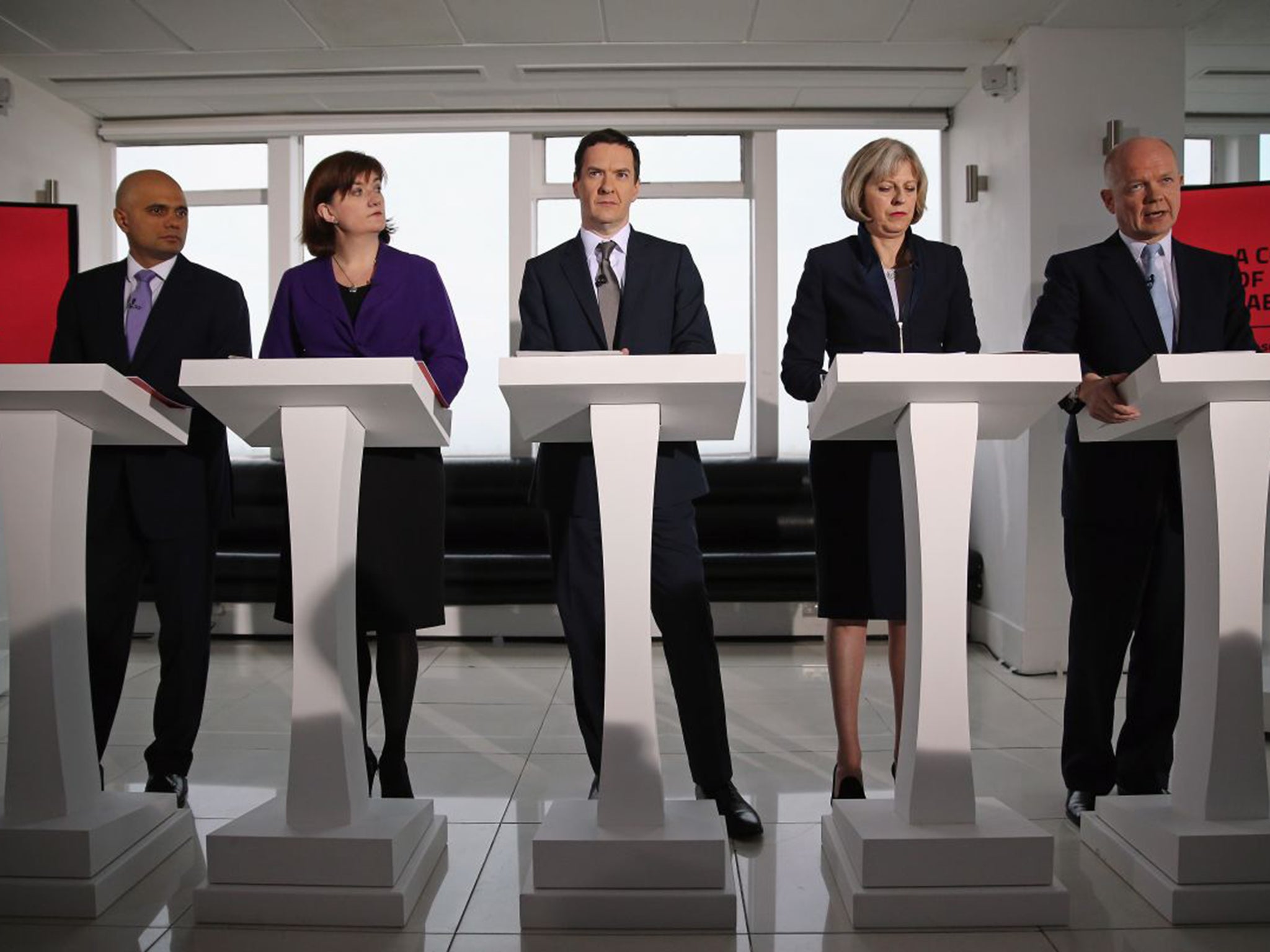Tax avoidance row: Who needs enemies if you have Lord Fink?
Because David Cameron is seen as a Tory toff, he can't win on facts. Only symbols count in this debate


I wish to draw your attention to the curious incident of the party that didn’t split in the run-up to an election. If you listen out for dogs that haven’t barked, the hound of Conservative Europhobia is one of the most strikingly silent. In the middle of this parliament, as large numbers of Tory backbenchers rebelled against their Government, it seemed that the party was ready to tear itself apart over the European question.
Now all is quiet. I heard a muffled squeak the other day, as if a dog wanted to bark but knew it shouldn’t, when Sajid Javid, the Culture Secretary, in reply to the question, would he shed a tear if Britain left the European Union, said no, he wouldn’t. But that isn’t a sign of a divided party. It is a sign of a united one. That is how most Tories feel. The Prime Minister himself says that, while the Union of Great Britain and Northern Ireland goes deep, the EU is another matter. For Tories, the EU is a question of interest not of sentiment: do we get more out of being in or out? In that attitude, the party is closer to the centre of gravity of public opinion than Labour’s reflex support for EU membership.
Naturally, the Labour line is that the Tory party is only quiet because David Cameron has given in to the Europhobes, and it is true that he never intended to promise a referendum. But there is a democratic argument for doing so, and a practical one that winning a referendum would be the best way to keep Britain in. Cameron is well placed to secure a deal that can be sold to the British people. Meanwhile, he has kept his party united and kept business leaders, most of whom want to stay in the EU, onside.
In many ways, Cameron has been an unlucky general. He was in the right place to win his party’s leadership 10 years ago, and took his chance. For all the complaints about his failure to win the 2010 election outright, his was a remarkable performance. It was the third biggest swing to an opposition party since the war, after Tony Blair’s in 1997 and Margaret Thatcher’s in 1979. But he never quite adjusted to the 2008 recession. Fate served up tough economic times for the poshest prime minister since Alec Douglas-Home, who had to renounce an earldom to serve for 12 months before losing an election.

The big mistakes of Cameron’s government came from this failure to be seen to feel the country’s economic pain. One error was to cut the top rate of income tax in 2013. Irrelevant as a revenue-raising measure, it was poisonous in further fostering the perception of the Tories as the rich people’s party.
That’s why last week’s aftershock about tax avoidance was so damaging. Cameron thinks he has dealt with it because he has acted as vigorously as any government to stop things such as Amazon using Jersey as a transhipment centre, but he doesn’t realise that, because he is seen as a Tory toff, he can’t win on facts. Only symbols count in this debate.
The other mistake was in the spending plans for the next parliament announced by George Osborne in December. On that, Cameron is almost plaintive: if you don’t start to pay down (they all say “pay down”, there’s nothing can be done about it) the national debt after 10 years, when will you? It is a fair question: logical, obvious and quite beside the point. Ed Balls’s rival plan is to start reducing the debt as a share of national income by 2020. It doesn’t sound very different but it gives Labour the chance to sound fiscally responsible and still spend £25bn a year more than the Tories, the equivalent of the entire Department for Transport budget.
The other side of Cameron’s poshness, though, is a sense of duty. He deals with what has been put on his plate, whatever it is. What was put on his plate was fixing the public finances and the economy. He has had to try to do that while fighting Labour on one side and the UK Independence Party on the other – Ukip’s success being partly a response to the recession with which Cameron never expected to deal.
I sense that the Prime Minister feels he has done everything he can to win with the hand that has been dealt him. If he loses in May, he does not want to look back and feel that there was something he could have done. He has shut down Europe as a divisive subject. He has done what he can to meet the concerns about free movement of EU workers that feed Ukip’s success, while keeping Britain in the EU.
He sees no alternative to rigid message discipline on the economy. He knows it is boring, but the only way to win is to go on about the economy and the public services for which it pays. Yet last week showed how vulnerable such a campaign is to mistakes that allow Miliband, the lucky general, to portray the Conservatives as the party of the rich. A Tory lord talking about “vanilla” tax avoidance as something that “everyone does” was the last thing that Cameron needed.
Join our commenting forum
Join thought-provoking conversations, follow other Independent readers and see their replies
Comments
Bookmark popover
Removed from bookmarks